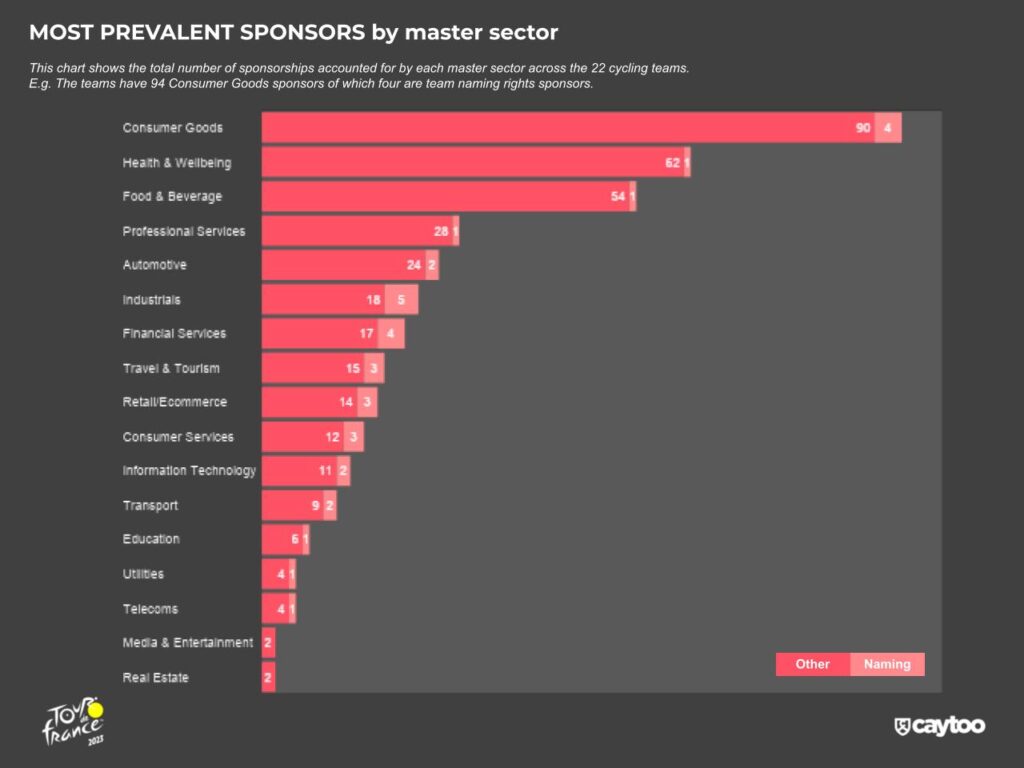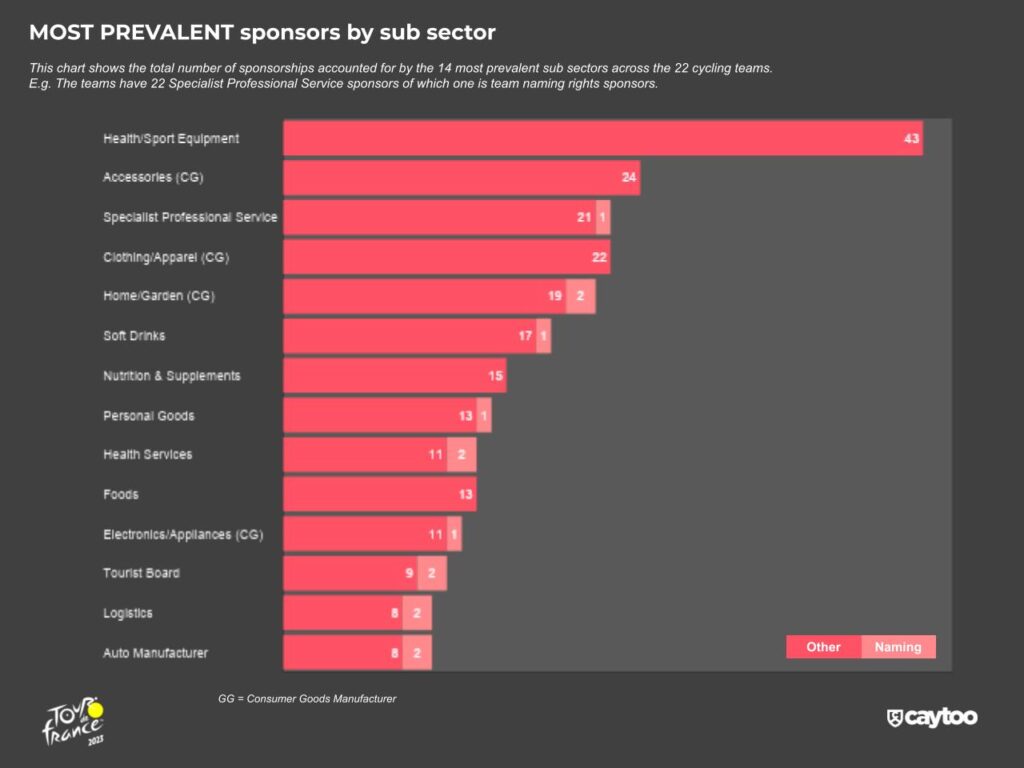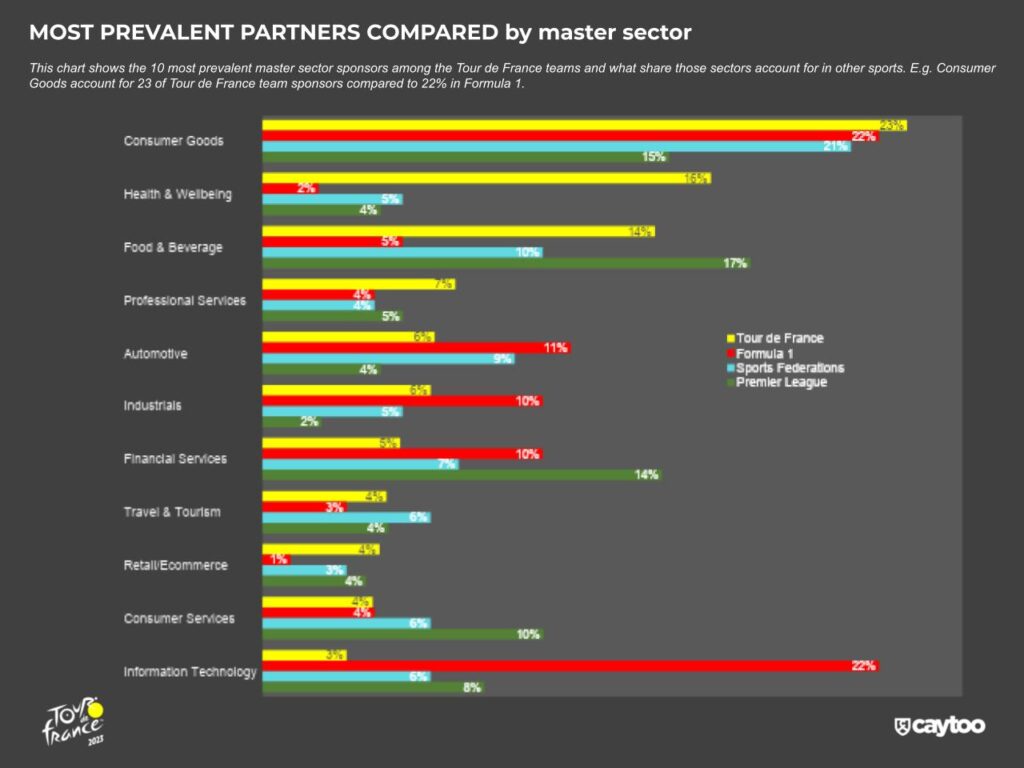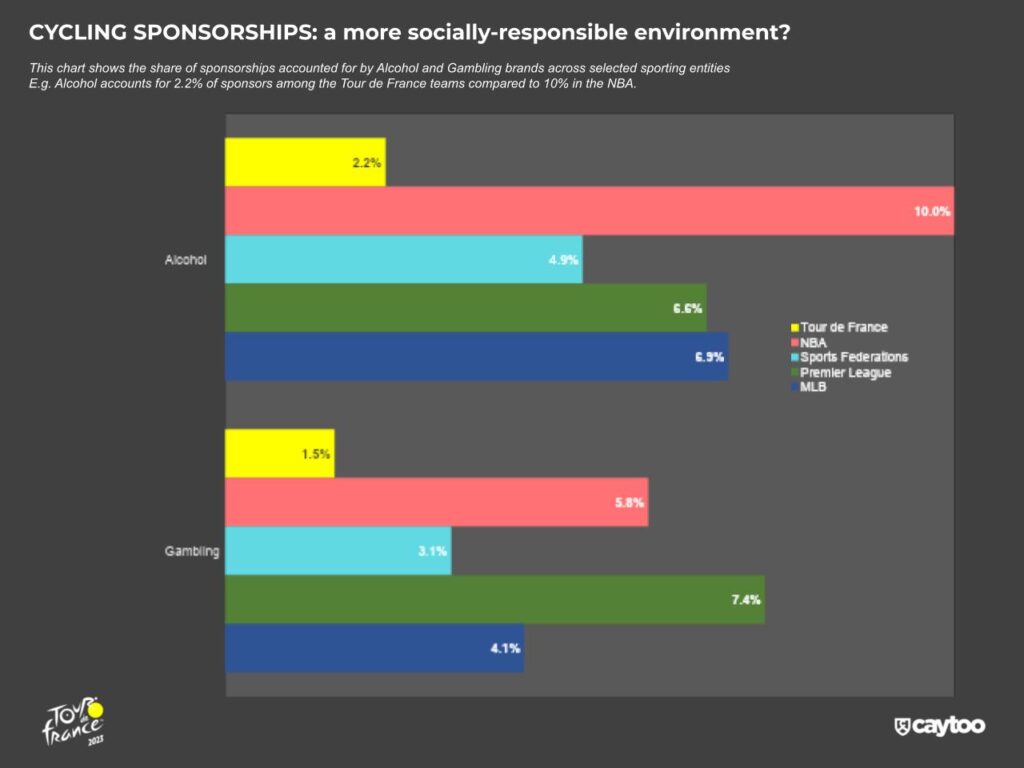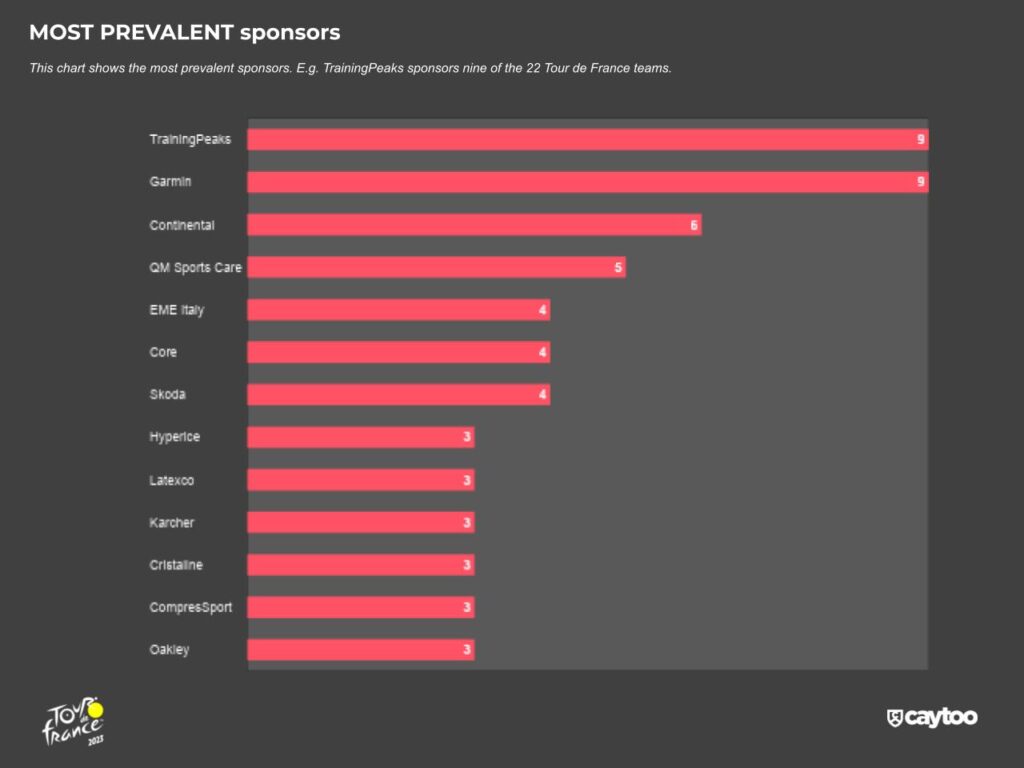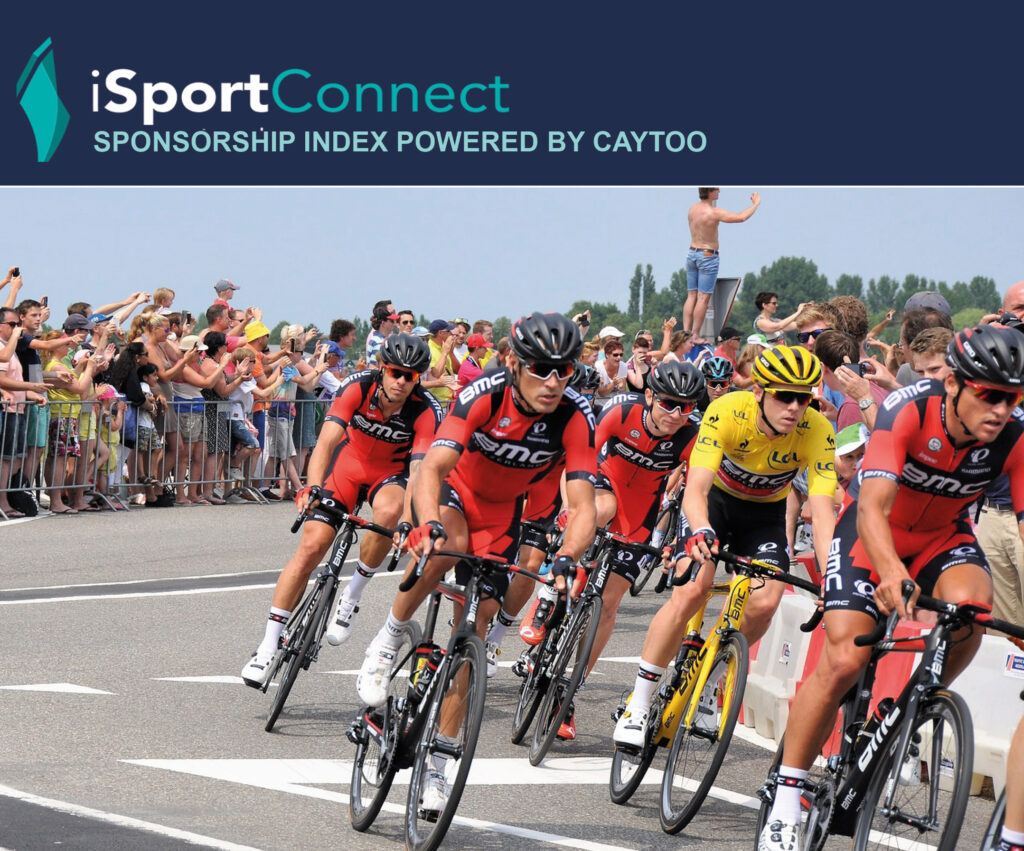Does cycling promote a more socially responsible sponsorship environment?
June 27, 2023
With the Tour de France’s Grand Depart in San Sebastián just two days away, we decided it was time to take a deep dive into the teams sponsors for this year’s Tour with this month’s Sponsorship Index powered by caytoo.
In cycling, as with many sports, the Consumer Goods sector tends to be the most common sponsor, however, cycling stands apart when it comes to the large share accounted for by Health & Wellbeing sponsors.
Among the 400+ sponsors across the 22 teams competing in this year’s Tour de France, 16% are Health & Wellbeing brands. This compares to just 2% in Formula 1, 4% among English football’s Premier League, 5% across global sports federations and 7% across both the NBA and MLB (both 7%).
Clearly, companies see cycling’s fanbase as much more interested in health and fitness, hence the prevalence of sponsors across the likes of fitness/training-related apps and health-related services. In this regard, cycling could therefore be seen as a much more socially responsible environment in that the messages being promoted to its fanbase are more likely to have a positive impact on people’s daily lives.
For example, two sectors which are often criticised when it comes to using sponsorship to promote their wares – Gambling and Alcohol – make up a much smaller share of sponsors among Tour de France teams (2.2% and 1.5% respectively) than in the likes of the NBA (10% / 5.8%), Premier League (6.6% / 7.4%), MLB (6.9% / 4.1%) and across sports federations (4.9% / 3.1%)
This is reinforced by the fact that five of the seven most common individual sponsors provide health/fitness-related products to consumers: training app TrainingPeaks, sport smartwatches Garmin (both with 9 sponsorships), QM Sports Care products (5), EME Italy physiotherapy-related products and body temperature sensor Core (both 4).
Here is the full breakdown:
